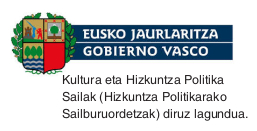Women and alcoholism: the impact of stigma
DOI:
https://doi.org/10.26876/uztaro.5063Keywords:
Woman, Alcoholism, Self-stigma, Seeking treatmentAbstract
In recent years, there has been an increase in women’s alcohol consumption, which has a negative impact, among others, on their levels of anxiety and depression, self-concept and the treatment seeking. Therefore, the main objective of this work is to carry out an updated systematic review of the impact of stigma on women with alcohol problems in their mental health and treatment research (using the PRISMA method). According to the results, between the barriers to seek treatment, the women had the highest levels of stigma and it was found that self-stigma is associated with depression and poor health. Therefore, knowing the impact of stigma on women’s well-being can be very useful for developing, implementing and evaluating prevention individualized or group programs for women.
Downloads
References
APA, American Psychiatric Association. DSM-5 Task Force (2013). Diagnostic and statistical manual of mental disorders: DSM-5. American Psychiatric Association.
Baraona, Enrique et al. (2016). Gender differences in pharmacokinetics of alcohol. Alcoholism: Clinical and Experimental Research, 25(4), 502-507.
Barr, Helen eta Streissguth, Ann (2001). Identifying maternal self-reported alcohol use associated with fetal alcohol spectrum disorders. Alcoholism: Clinical and Experimental Research, 25(2), 283-287.
Barreda Marina, María Ángeles et al. (2005). Mujer y adicción. Aspectos diferenciales y aproximación a un modelo de intervención. Serie Documentos Técnicos del Instituto de Adicciones de la Ciudad de Madrid. Instituto de Adicciones.
Birtel, Michèle; Wood, Lisa eta Kempa, Nancy (2017). Stigma and social support in substance abuse: Implications for mental health and well-being. Psychiatry Research, 252, 1-8.
Braun, Tosca et al. (2023). Self-compassion buffers the internalized alcohol stigma and depression link in women sexual assault survivors who drink to cope. Addictive Behaviors, 138, 107.562.
Brown, Seth et al. (2015). Correlates of Self-Stigma among Individuals with Substance Use Problems. International Journal of Mental Health and Addiction, 13(6), 687-698.
Calvo, Helena (2004). Maternidad, infancia y drogas: implicaciones clínicas. Adicciones, 295-314.
Dean, James eta Poremba, Gregory (2009). The Alcoholic Stigma and the Disease Concept. International Journal of the Addictions, 18(5), 739-751.
Erol, Almila eta Karpyak, Victor (2015). Sex and gender-related differences in alcohol use and its consequences: Contemporary knowledge and future research considerations. Drug and Alcohol Dependence, 156, 1-13.
Escribano, José Juan eta Parra, David (2007). Diferencias de género en la enfermedad alcohólica. Adicciones, 19(4), 383-392.
Gómez Moya, Josefa (2004). Algunas reflexiones sobre el alcoholismo femenino. Cuadernos de Trabajo Social, 17, 83-98.
Gómez Moya, Josefa (2006). El alcoholismo femenino, una verdad oculta. Trastornos Adictivos, 8(4), 251-260.
Góngora Soberanes, Janette eta Leyva Piña, Marco Antonio (1995). El alcoholismo desde la perspectiva de género. El Cotidiano, 132, 84-91.
Green, Kelly (2011). Barriers and treatment preferences reported by worried drinkers of various sexual orientations. Alcoholism Treatment Quarterly, 29(1), 45-63.
Grigg, Jasmin et al. (2023). A Latent Class Analysis of Perceived Barriers to Help-seeking Among People with Alcohol Use Problems Presenting for Telephone-delivered Treatment. Alcohol and Alcoholism, 58(1), 68-75.
Hammarlund, Rebecca et al. (2018). Review of the effects of self-stigma and perceived social stigma on the treatment-seeking decisions of individuals with drug- and alcohol-use disorders. Substance Abuse and Rehabilitation, 9, 115-136.
Hanpatchaiyakul, Kulnaree et al. (2017). Lived Experience of Thai Women with Alcohol Addiction. Asian Nursing Research, 11(4), 304-310.
Karriker-Jaffe, Katherine et al. (2018). Alcohol Availability and Onset and Recurrence of Alcohol Use Disorder: Examination in a Longitudinal Cohort with Cosibling Analysis. Alcoholism: Clinical and Experimental Research, 42(6), 1105-1112.
Keyes, Katherine et al. (2010). Stigma and Treatment for Alcohol Disorders in the United States. American Journal of Epidemiology, 172(12), 1364-1372.
le Berre, Anne-Pascale; Fama, Rosemary eta Sullivan, Edith (2017). Executive Functions, Memory, and Social Cognitive Deficits and Recovery in Chronic Alcoholism: A Critical Review to Inform Future Research. Alcoholism: Clinical and Experimental Research, 41(8), 1432-1443.
Livingston, James eta Boyd, Jennifer (2010). Correlates and consequences of internalized stigma for people living with mental illness: A systematic review and meta-analysis. Social Science and Medicine, 71(12), 2150-2161.
Luoma, Jason et al. (2008). Reducing self-stigma in substance abuse through acceptance and commitment therapy: Model, manual development, and pilot outcomes. Addiction Research and Theory, 16(2), 149-165.
Luoma, Jason eta Platt, Melissa (2015). Shame, self-criticism, self-stigma, and compassion in Acceptance and Commitment Therapy. Current Opinion in Psychology, 2, 97-101.
Melchior, Hanne et al. (2019). Substance abuse-related self-stigma in women with substance use disorder and comorbid posttraumatic stress disorder. European Addiction Research, 25(1), 20-29.
Míguez, María Del Carmen eta Permuy, Beatriz (2017). Características del alcoholismo en mujeres. Revista de la Facultad de Medicina, 65(1), 15-22.
NIAAA, National Institute on Alcohol Abuse and Alcoholism (2021). Understanding Alcohol Use Disorder. https://www.niaaa.nih.gov/publications/brochures-and-fact-sheets/understanding-alcohol-use-disorder
OME, Osasunaren Mundu Erakundea (2022). Dependencia Del Alcohol, CIE-11 para estadísticas de mortalidad y morbilidad. http://id.who.int/icd/entity/1580466198
Page, Matthew et al. (2021). Declaración PRISMA 2020: una guía actualizada para la publicación de revisiones sistemáticas. Revista Española de Cardiología, 74(9), 790-799.
Probst, Charlotte et al. (2015). Alcohol use disorder severity and reported reasons not to seek treatment: A cross-sectional study in European primary care practices. Substance Abuse: Treatment, Prevention, and Policy, 10(1), 1-10.
Ransome, Yusuf et al. (2017). Racial Disparities in the Association between Alcohol Use Disorders and Health in Black and White Women. Biodemography and Social Biology, 63(3), 236-252.
Rodrigues, Stephanie et al. (2013). Self-stigma, self-esteem, and co-occurring disorders. Journal of Dual Diagnosis, 9(2), 129-133.
Rodríguez, Elena (2002ko maiatza). Perspectivas de género en los problemas de drogas y su impacto. Symposium Nacional sobre el Tratamiento de la Adicción en la Mujer, 24-27.
Rubio, Gabriel eta Blázquez, Eva María (2000). Mujer y problemas por el alcohol. Guía Práctica de Intervención en el Alcoholismo, 327-336.
Sánchez, Lorenzo (2009). «Drogas y perspectiva de género». Documento marco, Plan de atención integral a la salud de la mujer de Galicia (Edición bilingüe).
Sánchez-Hervás, Emilio et al. (2010). Abandono del tratamiento en adictos a la cocaína. Adicciones, 22, 59-64.
Schomerus, Georg et al. (2011). The Stigma of Alcohol Dependence Compared with Other Mental Disorders: A Review of Population Studies. Alcohol and Alcoholism, 46(2), 105-112.
Slade, Tim et al. (2016). Birth cohort trends in the global epidemiology of alcohol use and alcohol-related harms in men and women: Systematic review and metaregression. BMJ Open, 6(10), e011827.
Small, Jeon; Curran, Geoffrey eta Booth, Brenda (2010). Barriers and facilitators for alcohol treatment for women: Are there more or less for rural women? Journal of Substance Abuse Treatment, 39(1), 1-13.
Sullivan, Edith; Rosenbloom, Margaret eta Pfefferbaum, Adolf (2000). Pattern of motor and cognitive deficits in detoxified alcoholic men. Alcoholism: Clinical and Experimental Research, 24(5), 611-621.
Thom, Betsy (1986). Sex Differences in Help-seeking for Alcohol Problems. The Barriers to Help-seeking. British Journal of Addiction, 81(6), 777-788.
Thornicroft, Graham et al. (2016). Evidence for effective interventions to reduce mental-health-related stigma and discrimination. The Lancet, 387(10023), 1.123-1.132.
Tomás-Dols, Sofía; Zurián, Juan Carlos eta Infer, Antonio Martín (2007). Género y barreras de accesibilidad al tratamiento en pacientes adictos al alcohol de la Comunidad Valenciana. Adicciones, 19(2), 169-178.
Tristán, Carmen et al. (2021). Alcohol 2021: Consumo y consecuencias. Madril: Observatorio Español de las Drogas y las Adicciones.
Van Boekel, Leonieke et al. (2013). Stigma among health professionals towards patients with substance use disorders and its consequences for healthcare delivery: systematic review. Drug and alcohol dependence, 131(1-2), 23-35.
Vilus, Bojana eta Perich, Tania (2021). The relationship between rumination, depression and self-stigma in hazardous drinkers: an exploratory study. Discover Psychology, 1, 6-11.
White, Aaron et al. (2015). Converging Patterns of Alcohol Use and Related Outcomes Among Females and Males in the United States, 2002 to 2012. Alcoholism: Clinical and Experimental Research, 39(9), 1.712-1.726.
Wiechelt, Shelly eta Sales, Esther (2001). The role of shame in women’s recovery from alcoholism: The impact of childhood sexual abuse. Journal of Social Work Practice in the Addictions, 1(4), 101-116.
Wong, Celia et al. (2018). Hacking Stigma by Loving Yourself: a Mediated-Moderation Model of Self-Compassion and Stigma. Mindfulness, 10(3), 415-433.
Zemore, Sarah et al. (2009). Gender, acculturation, and other barriers to alcohol treatment utilization among Latinos in three National Alcohol Surveys. Journal of Substance Abuse Treatment, 36(4), 446-456.
License
Copyright (c) 2024 Nahia Garcia de Eulate Garagalza, Goretti Soroa Martinez, Ainara Aranberri Ruiz, Aitor Aritzeta Galan

This work is licensed under a Creative Commons Attribution-NonCommercial-ShareAlike 4.0 International License.




















